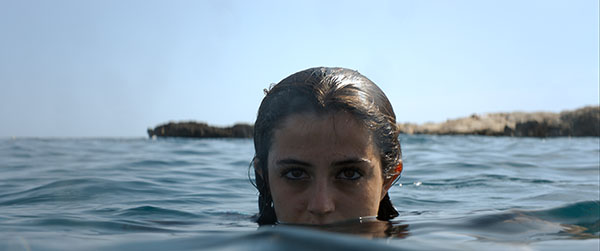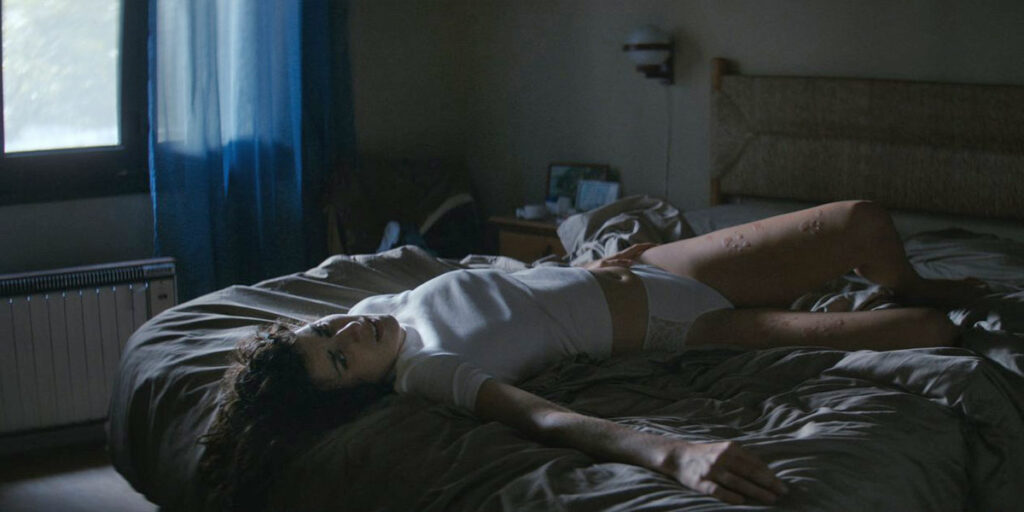Although it has an array of honest and kind moments, Creatura doesn’t stay afloat in its entirety due to its weak narrative structure.
Coming of age films have always played a crucial part in the Cannes Film Festival slate, often ending up as some of the most surprising or striking projects being screened there. Filmmakers telling their stories about younglings and the complicated experiences they face throughout one of the most challenging phases in life often feel relatable and expressive in various ways. However, there are some occasions in which directors fail to depict those experiences in a cinematic format by means of a wide variety of problems. Elena Martín’s Creatura, which plays in the Cannes sidebar Directors’ Fortnight (Quinzaine des Réalisateurs), is in between the two, having both moments of brilliance where it explores a girl’s sexual awakening, which has been a recurring theme this year’s festival, and head-scratching sequences that slightly break your experience with the film.
Creatura starts by showing us a couple, Mila (played by the film’s director, Elena Martín) and Marcel (Oriol Pla), moving into their new house by the Spanish coast. As they unload the car full of their personals, the loving couple ponders their new life together – thinking about this big next step and what’s to come. Mila and Marcel are happy together, or so it seems, as a night of passionate embrace ends in a huge fight between them. Marcel even threatens to leave right out of the door. But he immediately returns because, deep down in his heart, Marcel cares a lot about Mila. This quick fight demonstrates that something is brewing: an unresolved issue from the past is tearing them apart.
After a somewhat good night’s sleep, Mila wakes up with a rare rash on her body; she can’t stop scratching the bumps. Marcel asks her to see the local doctor. But Mila says that she already knows what works best to treat it as if this type of inflammation has happened to her before. As she rests so her body can recover, Mila begins to recollect some of her past experiences, precisely those which awakened her sexuality – her first kiss, boyfriends, parties, jealousy, masturbation, amongst other scenarios. The main reason Mila’s mind went back to those days is to reconcile with her own body. She has scars from the past that have found their way into her current life.

During this part of the film, you see that Mila went through many changes, mostly mentally, and it caused a lot of damage to her psyche. Because of its honesty and kind-hearted approach to the subject matter, this specific section during the first half contains Creatura’s best moments. Here, Elena Martín pours her heart out, and it almost feels like she’s telling this story from a more personal angle, detailing her experiences and reevaluating them as she’s aged.
The naturalism in the young cast’s performances is superb, immersing the viewer in this setting most of us are alien to, although it still contains a sense of relatability by seeing growing pains being depicted in a grounded way. Another reason why I think this segment is stronger than the rest is the palpable chemistry of the cast. It makes us feel their respective connection with one another (lovers, brothers, friends, or strangers), as well as their amount of eventual distance from one another.
The subject matter of sex is often deemed taboo still to this day. But Martín isn’t scared to talk about it and uses her knowledge about the subject to convey conversations about our own awakenings when we were younger. Creatura constructs its narrative structure by changing timelines at specific moments in the film, telling an easy-flowing story about a woman’s sexual awakening during three different stages in her life: five years old, fifteen, and thirty. In the press notes, Martín expressed that, alongside her co-scriptwriter Clara Roquet, she conducted interviews with both women and men about their own sexual education and first encounters. Then, they wrote a screenplay based on their newly found discoveries compiled from those interviews. Martín and Roquet found one specific detail that guides the parts in the film set during Mila and Marcel’s present: few people have developed a healthy sexuality.
The screenwriting duo uses that finding to articulate how to deal with expression amidst judgment through different stages of your life. Unfortunately, when the segment of a teenage Mila ends, my interest in the film’s subject begins to swindle because of a lack of answers to the film’s ambitious questions, narrative and thematic-wise. For example, when does a child’s sexual awakening actually start? And how much does this awakening cause damage to your future self? In Creatura, Elena Martín wants to emphasize the connection a woman has with her own body and sexuality. However, she makes things more complex than it needs to be by only demonstrating the character’s guilt, judgment, and punishment during her exploration. This specific issue causes the screenplay to make forced decisions on where it is headed next.
Don’t get me wrong: plenty of fascinating and thought-provoking ideas are still being covered through each segment Creatura is divided into. Regardless, you definitely feel that these narrative decisions by Martín cause more damage to the film than she would expect.
Creatura premiered at the Cannes Film Festival on May, 20 2023, as part of the Directors’ Fortnight. Read our list of 20 films to watch at the Festival de Cannes, our other reviews and our must watch films.

